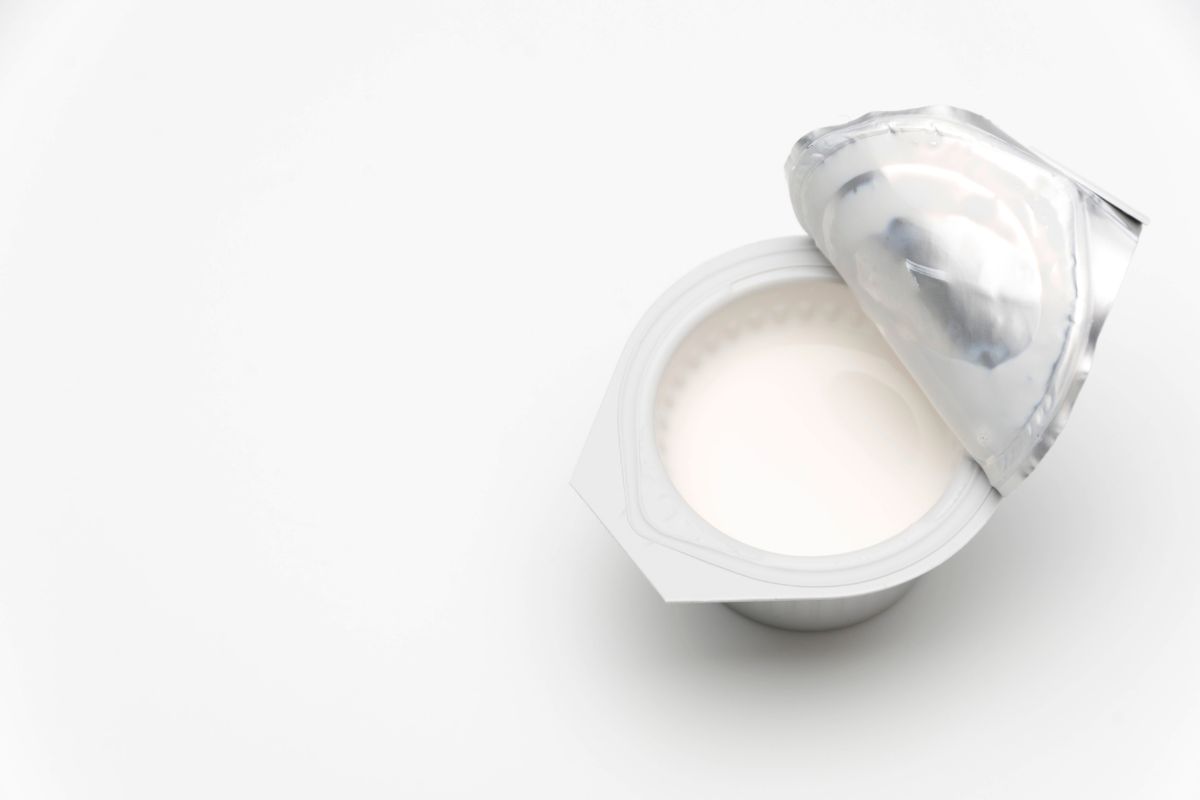In the realm of morning rituals, the brewing of a cup of coffee is an art form that many individuals take great pride in perfecting. However, the addition of milk to this beloved beverage has long been a topic of debate. Can one deviate from the traditional use of milk and instead opt for the ever-popular coffee creamer? This question has sparked curiosity and intrigue among coffee enthusiasts.

To embark on a journey of exploration, it is essential to delve into the composition of coffee creamer and compare its taste and texture to that of milk. Additionally, dietary restrictions and potential drawbacks must be carefully considered. For those seeking alternatives, a plethora of milk options for coffee exist.
Ultimately, the final verdict lies in unraveling the question: can you use coffee creamer instead of milk? Let us embark on this quest for knowledge and safety in the world of coffee consumption.
Key Takeaways
- Coffee creamer is a popular alternative to milk in coffee, offering a rich and creamy texture.
- Coffee creamers are often made with artificial ingredients and may lack nutritional value compared to milk.
- Coffee creamers can be a suitable alternative for individuals with lactose intolerance or following a vegan or dairy-free diet.
- The choice between coffee creamer and milk depends on personal preferences, dietary restrictions, and the desired taste, texture, and nutritional content.
The Composition of Coffee Creamer
Coffee creamer is typically made from a combination of hydrogenated vegetable oil, corn syrup solids, and other additives, which gives it a rich and creamy texture. Hydrogenated vegetable oil is used to provide the creamy consistency and enhance the mouthfeel of the creamer. It is created through a process called hydrogenation, which involves adding hydrogen atoms to the oil, resulting in a more solid and stable product.
Corn syrup solids, on the other hand, are derived from cornstarch and are used to add sweetness and enhance the flavor of the creamer. Additionally, coffee creamers often contain additives such as emulsifiers, stabilizers, and flavorings to improve their overall taste and texture.
When considering whether coffee creamer can be used as a substitute for milk, it is important to note that coffee creamers are generally richer and denser than milk. They tend to have a higher fat content and may contain artificial flavors and sweeteners. As a result, they can alter the taste and texture of beverages. However, some individuals may find that coffee creamer adds a pleasant richness to their drinks, especially in coffee or tea.
In the next section, we will compare the taste and texture of coffee creamer to that of milk, allowing individuals to make an informed decision about its suitability as a milk substitute.
Comparison of Taste and Texture
When comparing the taste and texture, it is noteworthy to consider the alternatives to milk in coffee such as coffee creamer. In order to provide a comprehensive analysis, a comparison table has been included below, outlining the taste and texture of both milk and coffee creamer.
| Taste | Texture | |
|---|---|---|
| Milk | Creamy, smooth | Light, fluid |
| Creamer | Sweet, flavorful | Creamy, velvety |
Milk is known for its creamy and smooth taste, which adds a subtle richness to coffee. It has a light and fluid texture that blends well with the beverage. On the other hand, coffee creamer offers a sweet and flavorful taste that can enhance the overall coffee experience. Its creamy and velvety texture provides a luxurious mouthfeel.
When considering safety, it is important to note that both milk and coffee creamer are generally safe for consumption. However, individuals with specific dietary restrictions or allergies should exercise caution and opt for alternatives that suit their needs.
Transitioning to the subsequent section about considerations for dietary restrictions, it is essential to explore the various options available for individuals with specific dietary requirements.
Considerations for Dietary Restrictions
Considerations for dietary restrictions encompass a range of options to accommodate individuals with specific dietary needs, ensuring their coffee experience remains enjoyable and tailored to their requirements. When it comes to substituting milk with coffee creamer, there are a few important factors to consider.
Firstly, individuals with lactose intolerance can benefit from using coffee creamer as an alternative to milk. Many coffee creamers are lactose-free or contain a reduced amount of lactose, making them suitable for those who have difficulty digesting lactose. This allows individuals with lactose intolerance to still enjoy their coffee without experiencing digestive discomfort.
Secondly, individuals following a vegan or dairy-free diet can also opt for coffee creamer instead of milk. There are various non-dairy creamers available in the market that are made from plant-based ingredients such as soy, almond, or coconut milk. These alternatives provide a creamy texture and can be a suitable replacement for milk in coffee.
It is important to note that individuals with specific dietary restrictions should carefully read the ingredients list of coffee creamers to ensure they align with their dietary needs. Some creamers may contain additives or allergens that may not be suitable for certain individuals.
Considering the potential drawbacks of using coffee creamer, it is important to explore its impact on taste, texture, and overall coffee experience.
Potential Drawbacks of Using Coffee Creamer

One aspect to be aware of when incorporating coffee creamer into a beverage is the potential impact it may have on the overall flavor profile and consistency, potentially altering the texture and taste experience. Coffee creamers often contain various additives and sweeteners, which can significantly alter the taste of the beverage. Some coffee creamers may have a distinct artificial flavor that can overpower the natural taste of coffee. This alteration in flavor may not be desirable for individuals who prefer a more authentic coffee taste.
Additionally, coffee creamers are typically thicker and creamier than milk, which can affect the consistency of the beverage. The added richness and viscosity of coffee creamer may result in a heavier mouthfeel compared to using milk. This may be appealing to some individuals who enjoy a richer and more indulgent coffee experience. However, for those who prefer a lighter and less creamy texture, the use of coffee creamer may not be ideal.
Moreover, it is important to consider the nutritional aspects of coffee creamer. While milk provides essential nutrients like calcium and protein, coffee creamers often lack these benefits. They may contain high amounts of saturated fats and added sugars, which can be detrimental to one’s health if consumed in excess.
Incorporating coffee creamer into a beverage can have potential drawbacks in terms of altering the flavor profile, consistency, and nutritional value. Considering these factors, individuals seeking alternative milk options for coffee may find it beneficial to explore other options.
Alternative Milk Options for Coffee
Alternative milk options for coffee include plant-based alternatives such as almond, soy, coconut, and oat milk, which offer a range of flavors and textures to suit different preferences. These milk alternatives are becoming increasingly popular due to various reasons such as lactose intolerance, vegan lifestyles, and personal taste preferences.
To provide a clear picture of the different options available, the following table outlines the nutritional composition and potential allergens of these alternative milk options:
| Milk Alternative | Nutritional Composition | Potential Allergens |
|---|---|---|
| Almond Milk | Low in calories and fat | Nuts |
| Soy Milk | High in protein | Soy |
| Coconut Milk | Rich and creamy | Tree nuts |
| Oat Milk | Creamy texture | Gluten (if not certified gluten-free) |
When choosing a milk alternative for coffee, it is important to consider any dietary restrictions or allergies. Additionally, some individuals may prefer certain flavors or textures over others.
Considering the wide range of options available, it is clear that coffee creamer is not the only alternative to milk for coffee. These plant-based alternatives provide a variety of flavors and textures that can enhance the coffee-drinking experience. In the next section, we will explore the final verdict on whether coffee creamer can be used instead of milk.
Final Verdict: Can You Use Coffee Creamer Instead of Milk?
The final verdict on the substitution of coffee creamer for milk can be determined by evaluating the key differences between these two options and their impact on the overall coffee-drinking experience.
- Taste: One of the most significant differences between coffee creamer and milk is the taste. Coffee creamers often come in a variety of flavors, such as vanilla or hazelnut, which can enhance the flavor of the coffee. On the other hand, milk has a more neutral taste that may not alter the coffee’s flavor significantly.
- Texture: Coffee creamers tend to be thicker and creamier in texture compared to milk. This can result in a smoother and richer mouthfeel in the coffee. Milk, on the other hand, is lighter and can make the coffee feel less heavy.
- Nutritional content: Milk is a natural source of essential nutrients like calcium and protein. Coffee creamers, on the other hand, are often made with artificial ingredients and may lack the nutritional value of milk.
- Allergies and sensitivities: Some individuals may have allergies or sensitivities to lactose or dairy products. In such cases, coffee creamers can serve as a suitable alternative.
While coffee creamer can be a convenient substitute for milk in coffee, it is important to consider the taste, texture, nutritional content, and any allergies or sensitivities before making the switch.
Ultimately, the choice between coffee creamer and milk depends on personal preferences and dietary restrictions.
Frequently Asked Questions
How long can coffee creamer last after being opened?
Once opened, coffee creamer can last for about 1-2 weeks in the refrigerator. However, it is important to check the expiration date on the packaging for accurate information on its shelf life.
Can coffee creamer be used in recipes other than coffee?
Coffee creamer can be used in recipes other than coffee, adding a creamy and rich flavor. However, it is important to note that coffee creamer may have a higher fat and sugar content compared to milk, so adjustments may be needed for desired taste and nutritional considerations.
Is coffee creamer suitable for individuals with lactose intolerance?
Coffee creamer may not be suitable for individuals with lactose intolerance due to its high lactose content. It’s important for such individuals to choose lactose-free alternatives, like almond or soy milk, to ensure their safety and avoid discomfort.
Can coffee creamer be used in hot beverages other than coffee?
Coffee creamer can be used in hot beverages other than coffee, as it is a versatile alternative to milk. However, it is important to note that coffee creamer may alter the taste and texture of the beverage compared to using milk.
What is the shelf life of coffee creamer?
The shelf life of coffee creamer varies depending on the type and brand. Generally, powdered creamers have a longer shelf life of up to two years, while liquid creamers typically last for several months when stored properly in a cool, dry place. It is important to check the expiration date and follow storage instructions for optimal safety.
Conclusion
In conclusion, it is important to carefully consider the composition, taste, and potential drawbacks of using coffee creamer instead of milk.
While coffee creamer may provide a similar texture and taste to milk, it is essential to take into account any dietary restrictions or health concerns.
Additionally, alternative milk options can offer a healthier and more suitable substitute for those who cannot or choose not to use milk.
Ultimately, the decision to use coffee creamer instead of milk should be made with thoughtful consideration of these factors.
Related articles: